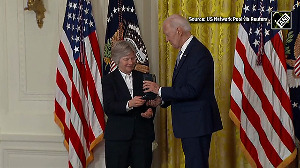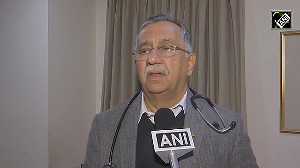"Appreciation of currency is a challenge for firms...the government should support firms in the early stage of technology development. Tax concessions can be one of the options, but government should look at a range of options to raise productivity levels of the industry," World Bank senior economist Mark Dutz told PTI.
The rupee has appreciated against the US dollar by over 11 per cent since January this year, touching nine-and-half years' high mark of 39.57 to a dollar.
The World Bank economist, who is in India for the launch of a report 'Unleashing India's Innovation' said: "A fund of funds should be created to spur public-private venture capital funds targeted at early-stage investing."
He said: "I am not sure about the effectiveness of tax concession. The international studies also favour caution on tax concessions."
In July, Finance Ministry announced a financial package of Rs 1,400 crore (Rs 14 billion) for the exporters hit by Indian currency appreciation against the greenback.
Finance Minister P Chidambaram has also said that instead of intervening in currency market, government could consider further concessions for exporters. For the current year, government has fixed a target of $160 billion of export.
The government should also relax investment guidelines for pension and insurance funds to allow them to increase their investments in venture capital funds, within prudential norms, said Dutz.
The output of the economy could increase more than five-fold if all enterprises could achieve national best practices based on knowledge already in use in India, the World Bank economist noted, adding that if informal sector was considered, the gains would be much higher for India in the global market.
Referring to low productivity in different sectors of the economy, the report noted that the total factor productivity growth of manufacturing sector in India was merely 1.1 per cent relative to 6.2 per cent in China.
However, the service sector posted 3.9 per cent TFP growth in India as against 0.9 per cent in China, explaining the spurt in IT growth.
It has also recommended that to encourage stronger competition among enterprises, government should remove non-essential regulations, barriers to import competition as well as introducing bankruptcy reforms and modernising the Industrial Disputes Act.






 © 2025 Rediff.com -
© 2025 Rediff.com -